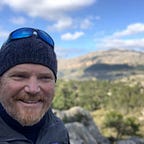Museums as bioregional learning centres in a glocal world (a precedence)
Sir Patrick Geddes & The Outlook Tower
More than 100 years ago the biologist Sir Patrick Geddes, who is also credited for being a founding influence in the fields of town planning and sociology, and who’s ‘Edinburgh International Summer School’ has turned into the now famous Edinburgh Festival, pioneered the use of museums to connect people to their home place but with global awareness. Geddes is the originator of the often quoted invitation to “Think Global, Act Local”.
Geddes was also a pioneer of participatory urban renewal. He moved his family into the old town of Edinburgh which at the time was in slum like conditions and engaged the poor people living there in a cooperative clean up of their neighbourhood. He founded the first ‘student union’ offering affordable co-housing to students while their presence in these poor neighbourhoods helped to transform the social fabric.
The ‘Outlook Tower’ at Ramsey Gardens at the top of the Royal Mile and just below Edinburgh Castle still stands today. Geddes established this museum to help people in Edinburgh understand how their place was intimately connected with the whole world. Visitors would enter at the ground floor with an exhibition about the world weaving findings from many different disciplines into a bigger picture. As they moved up the tower they would learn about nested wholeness (a now critically important framework of regenerative development) as they progressively learned about Europe, the language-based connection of the United Kingdom, then Scotland a sovereign country and end up at the top floor of the building where a cutting edge technology of the time — the camera obscura — projected an image of the city of Edinburgh onto the ceiling of the building.
Geddes used this museum to communicate a bioregional approach to town and regional planning to a wider public. His 1910 book ‘Cities in Evolution’ pioneered a bioregional approach to matching how we meet the needs of people within the limits and unique conditions of the bioregions they live it. During the annual international summer schools organised by Geddes he would bring leading thinkers together in publicly staged dialogues to catalyse civic participation and discourse as well as trans-disciplinar integration of knowledge at a time where academic specialisation was starting to fracture our more holistic understanding of the world and our role in it.
Geddes was also a key initiator of the Celtic arts and crafts revival movementin Scotland and stimulated many artists to engage in civic discourse and Scottish identity building through exhibitions and their work.
I regard Geddes as one of the modern pioneers of a bioregional approach to urban and regional development. He understood that health and wholeness had a nested interdependent relationship. He not only intellectually pioneered a trans-disciplinary integration of knowledge, he actively catalised real world experiments in the Old Town of Edinburgh and with the International Summer School, as well as later during his work in India.
To me the Outlook Tower is an idea who’s time has come. To redesign the human presence and impact on Earth within the lifetime of the generations alive today, and to do so in full participation community by community and bioregion by bioregion in a place-sourced way that is patterned by the bio-cultural uniqueness of place, will require everyone to understand the significance of local community and bioregional scale regeneration in the glocal context of a planetary scale movement to heal the Earth and her people.
More on how Sir Patrick Geddes pioneered a new approach to ‘Design and Planning for People in Place’:
This piece is an extract from a larger resource document entitled ‘Regenerative Cultures & Cultural Institutions (Version 0.0)’:
—
If you like the post, please clap AND remember that you can clap up to 50 times if you like it a lot ;-)!
Daniel Christian Wahl — Catalyzing transformative innovation in the face of converging crises, advising on regenerative whole systems design, regenerative leadership, and education for regenerative development and bioregional regeneration.
Author of the internationally acclaimed book Designing Regenerative Cultures
Please consider becoming a patron of my ongoing work:
